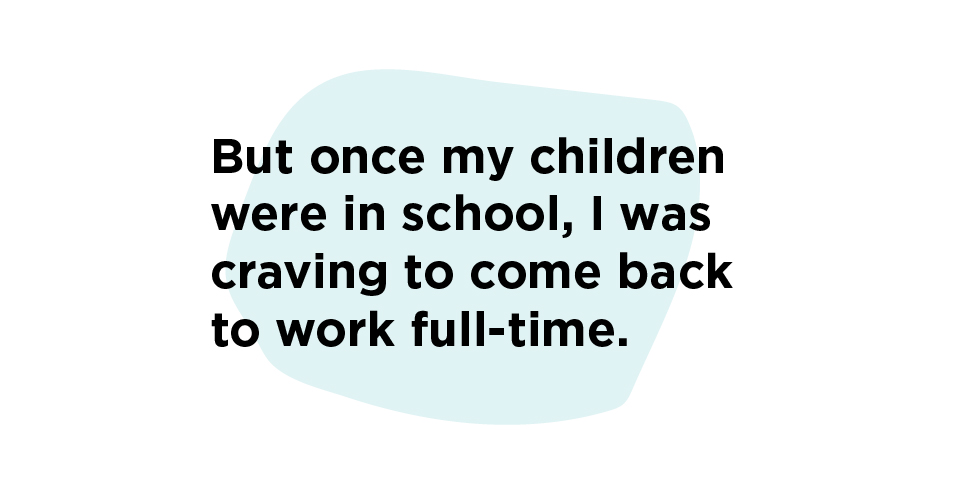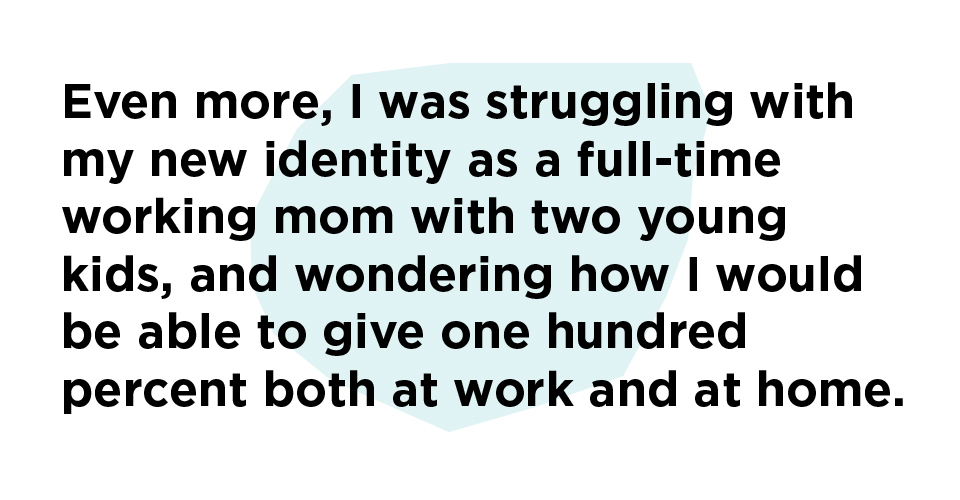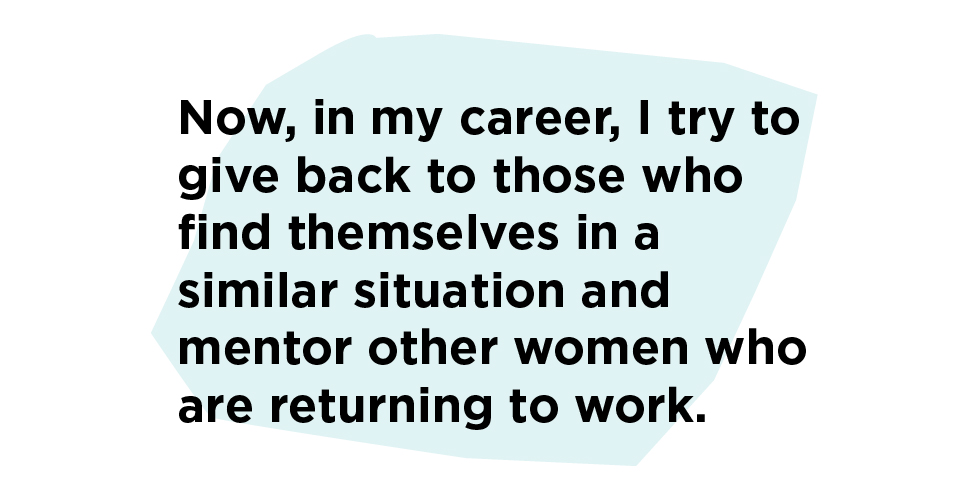The morning going back to work.
Here I was, six years since I’d last set foot in a corporate office, and I had nerves like it was
my first day of work all over again. It’s not that I didn’t know what I was doing. I had an advanced degree in operations research, but still, memories of pumping milk in a conference room and having to leave at 5 pm on the dot were bringing up forgotten stress.
I breathed and gave myself the same pep talk that I gave my two kids on their first day of school: “You can do this.”
Journey to the Center of My Career
I hadn’t always planned on
taking a break in my career. Starting off, all I knew was that I loved math and wanted to find a role where I could apply that love into a practical field that would help others. Early in my career, I discovered operations research and later cryptography, and I was able to study both, eventually finishing my Ph.D. at Stanford in operations research.
Shortly after welcoming my first child into the world, I made the unusual move of leaving an established firm and joining a startup. Although I’d negotiated a part-time role, the transition to being a working mom was a struggle—and I realized that this was going to be harder than I’d anticipated. Even harder, the startup eventually failed, and I was expecting my second child. I was seven months pregnant—and out of a job.
After some hard discussions and introspection, I made the difficult decision to leave work for a year to focus on my family. One year turned into six years, and I am grateful I was able to take this time to focus on my family. But once my children were in school, I was craving to come back to work full-time.
My Career Homecoming
I had an idea of what to expect in the workforce. After all, I was a working mom before and, now that my children were older, it should theoretically be easier. This time around, they were more independent. And even better, I was starting at a very supportive work environment—one that was accommodating and understood that I’d been out of the workforce for a few years. I was excited and ready to apply math to a new emerging field at the time: data science. As I joked, I was a scientist without a lab coat.
Still, even with the support, re-entering the workforce was not without its challenges. The pace of technology moves faster than ever before, and I felt like I was behind. There were new coding languages to learn. I’d forgotten many of the details of math and statistics that I used to know so well. Even more, I was struggling with my new identity as a full-time working mom with two young kids. I was left wondering how I would be able to give one hundred percent both at work and at home.
How to On-Ramp Back Into a Tech Job
Looking back on those years, I realize they were some of the most trying times in my career. The on-ramp back into
a technology career is not easy. Now, in my career, I try to give back to those who find themselves in a similar situation and mentor other women who are returning to work.
Find a Mentor
I was lucky to have a mentor who vouched for me to come back to work, but oftentimes, the hardest part is getting someone to take an interview with you. What I often tell others is the age-old advice, “
Network before you need to.” Keep in touch with your network while you’re out of the workforce. Not only does it help you get a foot in the door for a new role (like it did for me), but it can give you a sense of what you’re missing in your skillset, offer you support during the transition, and give you people who can serve as references for you.
Market Your Skills
One of the other things I learned was to
sell the skills you learned during your gap, and highlight how they’ll translate well into a new role. For example, the ability to learn independently through taking online courses, leadership from supporting non-profits, or project management skills from organizing events.
I also give the advice that it’s important to highlight the technical skills and professional experience you have, since leaving the workforce is not the same as having no experience at all. During my interviews when I was trying to re-enter the workforce, I found that the focus was much more on my
technical skills than my
soft skills, as opposed to before my career gap. Also, remind yourself of what you once knew. It’s amazing what sleep deprivation can do to your memory, so don’t underestimate the importance of a good refresher.
Continue Your Education
Returnship programs enable people who have taken a break in their career to return to the workforce through a structured program that provides technical training and on-the-job experience. At Intuit, for example, we offer a program called
Intuit Again, which enables cohorts of mid-career professionals to return to the workforce with a mentor who helps them with this transition. I’m proud to serve as a mentor to others in this program and make it an easier transition.
I’m grateful to have found a company that saw the potential in me and understood that I have so much more to offer than what’s on my resume. Through returnship programs like Intuit Again, I hope others are able to start the next chapter of their careers and lives and have the confidence to take a break and be able to start your career again.














